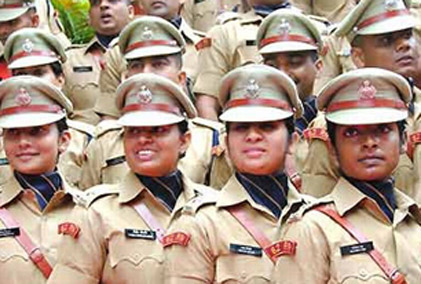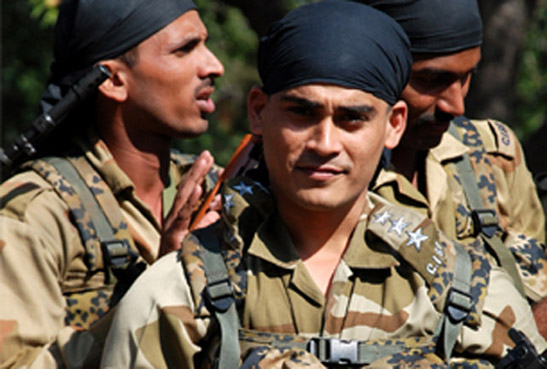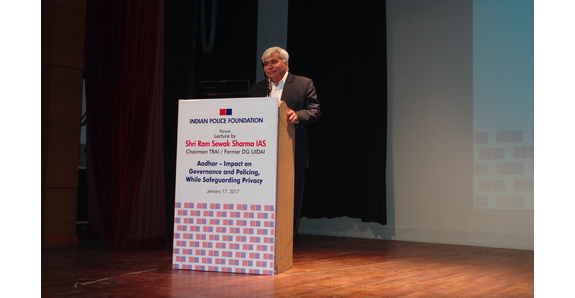Who we are
The Police Foundation and Institute is a multi-disciplinary think tank dedicated to work for police reform and the improvement of policing through research, capacity building and policy advocacy. The Foundation is driven by a coalition of progressive police professionals and citizen stakeholders who believe that positive transformation in the Indian Police is possible, through collective action by the police, citizenry, the State and Central Governments as well as the political leadership. The Foundation is governed by an eminent Board, whose members include serving and retired police officers, civil servants and thought leaders from civil society, academia, media, industry and the legal profession.
The Indian Police Foundation and Institute was inaugurated by Shri Rajnath Singh, Union Home Minister on October 21, 2015, at New Delhi.
How we are structured
The Police Foundation and Institute functions at two levels, namely :
(1) Indian Police Foundation
The Indian Police Foundation is a multi-disciplinary think tank that brings together the police and the citizen stakeholders, to collectively work for building a professionally efficient and socially sensitive police.
(2) Indian Police Institute
The Indian Police Institute is a professional institution for scientific research and evidence-based policing and a resource centre for capacity building and leadership development to promote a culture of excellence within the rank and file.
Our Vision of the Indian Police
- The Indian Police shall always steadfastly uphold the Rule of Law, respect the Dignity of the Individual and Human Rights and display an unwavering commitment to lawful methods of policing.
- The Police shall be seen as a service, dedicated to provide honest, inclusive, transparent, fair, equitable and responsive services to the citizens.
- While being subject to democratic and governmental oversight, the Police shall have the freedom to discharge its duties without fear or favour and unfettered by undue external and extraneous influences. Accountability is at the cornerstone.
- The Police shall secure the willing cooperation, trust and respect of the community by demonstrating their professional competence, effectiveness and absolute impartiality in their actions.
- Through high quality applied research and knowledge development and working on the frontiers of relevant technology and innovation, the police shall be well-equipped and well trained to leverage the current and emerging technological innovations as a force multiplier for better operational success and shall be committed to a culture of continuous pursuit of professional excellence.
- Considering that police personnel are required to possess high levels of technical knowledge, skills and diligence, as well as the sensitivity and resilience to confront the stresses and strains of a highly demanding, often dangerous and complex work environment, they shall be suitably compensated and assured of decent working and living conditions as well as opportunities for their career development.
The PM’S ‘SMART’ Policing vision
The PM’s articulation of a ‘SMART’ policing vision for a Sensitive and Strict, Modern and Mobile, Alert and Accountable, Reliable and Responsive, Trained and Techno-savvy police, sums up what the Indian Police should be. This vision needs to be analysed, understood, and implemented in letter and spirit. The realisation of this vision is the joint responsibility of the police, the State and Central Governments, the political leadership as well as the citizen stakeholders.
INTERNAL POLICE REFORMS
What is urgently required is a determined effort on a mission mode, to bring about internal reforms within the police. The first step to implement SMART police is to clean up the cobwebs within the department, articulate strong value systems and clearly communicate the criticality of lawful, unbiased, strict and sensitive policing. Strict compliance with the values of accountability, sensitivity and respect for human rights as well as the modernisation of training and the leveraging of technology, are well within the scope of internal police reforms, for which the police leadership should take initiative and assume full responsibility.
It is also important to completely re-imagine and reform the police station.
PHYSICAL & MENTAL HEALTH, WELLNESS & WELLBEING OF PERSONNEL
We believe that improving the physical & mental health, wellness and wellbeing of personnel and addressing the psychosocial stress factors could potentially improve the quality of police-citizen engagement, service delivery, and citizens’ trust in police. Sensitization of the police to deal with citizens with compassion and dignity and enabling the poor and weaker sections to access justice are critical requirements.
Yes, we can!
We believe that transformative reforms in the Indian Police is possible through appropriate interventions in skill building and attitudinal training, through reforms that are both bold and practical, and through collective action of all stakeholders to drive a nationwide campaign for change, keeping in mind, the difficult conditions under which our police functions.
THE IDEAS FACTORY OF THE INDIAN POLICE
The Police Foundation & Institute seeks the generation of powerful, transformative and compelling ideas, to inspire and influence positive change. The Institute will nurture an ecosystem of police professionals and academic researchers, that would help devise strategies to support, scale up and communicate powerful ideas to drive positive change.
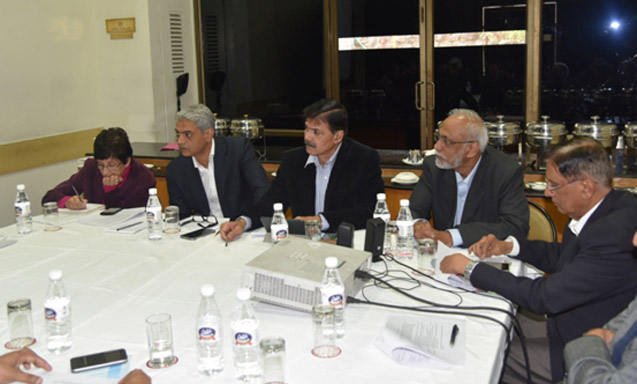
The energies so unleashed, are expected to create a critical mass that would help bring about cultural and attitudinal changes, new approaches, technologies and best practices.
Focus on training of police personnel at the grassroots level
The ease and anonymity with which modern day criminals take advantage of new technology, presents huge challenges to the police and the criminal justice system. With India’s burgeoning internet and mobile penetration, coupled with our quick transition into a less-cash economy, the numbers of reported cybercrimes are fast rising and online and smart-phone financial transactions are getting increasingly vulnerable. Our police is likely to face a huge shortage of professionally qualified and trained manpower in the coming few years. There is an urgent need to train and equip the police to deal with these new age challenges. Simultaneously, we need to also sensitize our police personnel on the need to respect human rights and uphold the rule of law and ethical standards in all situations.
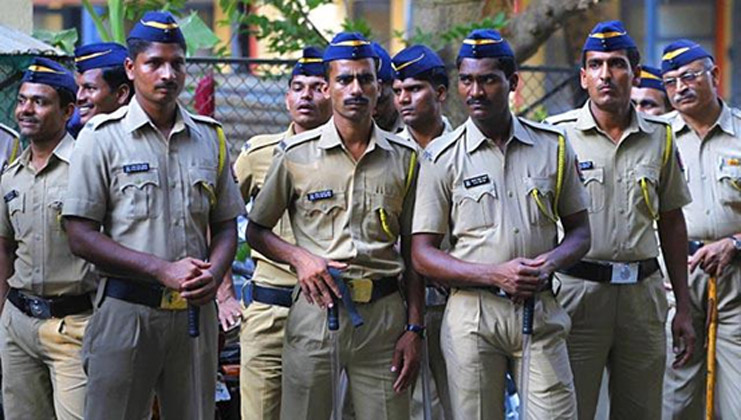
Image source: Hindustan Times
The fundamental focus of the Indian Police Foundation and the Indian Police Institute is to constantly strive for improving and modernizing police training, by closely interacting with State and Central Police authorities and providing support to them in terms of research and development and other technical inputs.
Did you know?
With the exponential increase in internet and mobile penetration, the country is witnessing an unprecedented increase in cyber and mobile device-enabled crimes, even as an increasing number of crimes and subversive and terrorist activities are committed with the help of the internet and mobile devices.
Nationwide stakeholder consultations on safety of women and children
Safety and security of citizens is one of the primary concerns and duties of the police. Particularly, women and children face a wide variety of vulnerabilities in the form of sexual violence
News/Press Releases
2020
Why Delhi burned: The police, courts and media failed to stand up for rule of law
What happened in Delhi on February 24 is a matter…
2019
Declare commitment to police reforms, political parties told
The Indian Police Foundation & Institute (IPF) has asked all…
2019
Press Release
The Indian Police Foundation urges all political parties to declare in their manifestos, their commitment…
Engage with us
Be part of the Police Reform Movement
![]()
Support us
Be part of this nationwide campaign !
There are many ways you can help and support the Police Foundation and Institute – directly and indirectly.
![]()
MEMBERSHIP
INDIAN POLICE INSTITUTE (IPI)
Application form for professional individual membership of The Indian Police Institute




